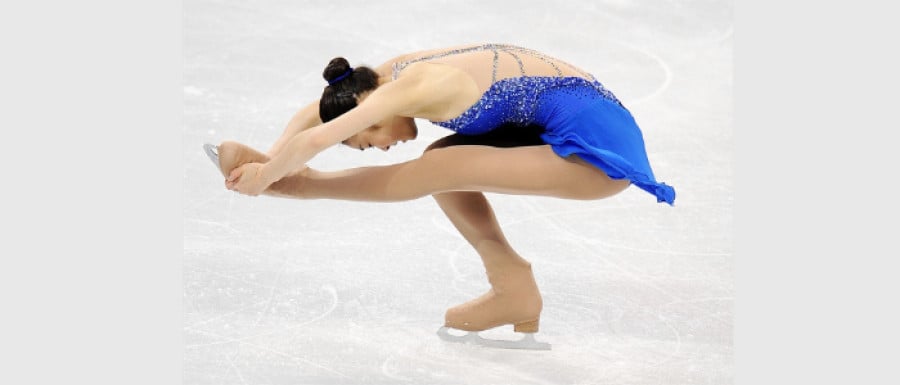Can athletes claim copyright in their sporting performances?

Whether athletes are able to claim copyright in the sporting events that they participate in is an interesting question, and one to which the answer has crucial implications, not only for the the athletes and their teams, but also for the entities that usually lay exclusive claim to the rights to exploit the event (typically national sports federations, sponsors and broadcasters).
The crux of the question is whether the athletes are, in the context of their sporting event, preforming or producing a qualifying “work” in the eyes of copyright law. If they are, then they would have a claim over the exclusive rights to control the distribution of their “work”.
Strangely – or perhaps as anticipated given the need for this blog – the answer is not entirely clear, so I will endeavour to explore the issue below.
What defines a “work” that qualifies for copyright protection?
Directive 2001/29/EC (the Copyright Directive)
Analysing the Copyright Directive,1 the European Court of Justice (ECJ) stated in Infopaq International 2 that:
“…copyright within the meaning of Article 2(a) of the Copyright Directive is only applicable in relation to a subject-matter [work] which is original in the sense that it is its author’s own intellectual creation…With respect to the scope of such protection of a work, it follows from recitals 9 to 11 in the preamble to Directive 2001/29 that its main objective is to introduce a high level of protection, in particular for authors to enable them to receive an appropriate reward for the use of their works, including at the time of reproduction of those works, in order to be able to pursue their creative and artistic work."3
For the purposes of copyright protection then, the term “literary and artistic works” is understood to include every original work of authorship, irrespective of its literary or artistic merit. The ideas in the work do not need to be original, but the form of expression must be an original creation of the author.4
Berne Convention
Under the Berne Convention for the Protection of Literary and Artistic Work, the term “artistic work” includes every production in the artistic domain; whatever the mode or form of its expression.5
Can sporting events be “works” that qualify for copyright protection?
The position in Europe
The question was raised and addressed in the context of football in the joined cases of Football Association Premier League Ltd (FAPL) and Others v QC Leisure and Others, and also in Karen Murphy v Media Protection Services Ltd.6
FAPL, who run the Premier League, marketed and distributed the television broadcasting rights for the matches based on territorial exclusivity. Certain undertakings in the United Kingdom begun to use foreign decoder cards, issued by a Greek broadcaster to subscribers resident in Greece, to access Premier League matches, instead of paying FAPL for broadcasting rights. The FAPL took the view that such activities undermined the value and exclusivity of their television broadcasting rights.
The ECJ stated: “FAPL cannot claim copyright in the Premier League matches themselves, as the matches cannot be classified as works…. [t]o be so classified, the subject-matter concerned would have to be original in the sense that it is its author’s own intellectual creation”.7
The Court continued to conclude:
“sporting events cannot be regarded as intellectual creations classifiable as works within the meaning of the Copyright Directive. That applies in particular to football matches, which are subject to rules of the game, leaving no room for creative freedom for the purposes of copyright. Accordingly, those events cannot be protected under copyright. It is, moreover, undisputed that European Union law does not protect them on any other basis in the field of intellectual property”.8
Notwithstanding that conclusion, however, the ECJ interestingly went on to say: “…none the less, sporting events, as such, have a unique and, to that extent, original character which can transform them into subject-matter that is worthy of protection comparable to the protection of works, and that protection can be granted, where appropriate, by the various domestic legal orders.“
The position in the United States
The US courts have taken a similar approach. In NBA v. Motorola,9 where the NBA purported thatMotorolainfringed the NBA's copyright on the broadcast of games, the United States Court of Appeals for the Second Circuit stated:
To continue reading or watching login or register here
Already a member? Sign in
Get access to all of the expert analysis and commentary at LawInSport including articles, webinars, conference videos and podcast transcripts. Find out more here.
- Tags: Action Sports | American Football | Athletics | Badminton | Baseball | Basketball | Berne Convention for the Protection of Literary and Artistic Work | Boxing | Contract Law | Copyright | Cricket | Cycling | Europe | European Court of Justice | Football | Golf | Hockey | Horseracing | Ice Hockey | Intellectual Property | Martial Arts | Motorsport | Olympic | Paralympics | Premier League | Rugby | Snooker | Swimming | Tennis | United States of America (USA) | Volleyball | Winter Sports
Related Articles
- How successful were FIFA and its sponsors at protecting their brands during the World Cup?
- How does the UK regulate data collection by sports apps?
- A full review of the O’Bannon v. NCAA judgment
- The 6 Second Vine, Football Broadcasting & the Premier League
Written by
Jirí Janák
Jiri Janak is an attorney-at-law specialising in the fields of sports law, civil and procedure law, and business law. He practices in Prague, Czech Republic for KSD Legal, the award winning sports law firm.




